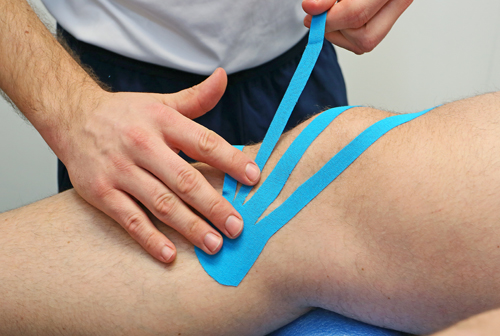Shoulder Impingement
What is it?
A shoulder impingement is a painful condition affecting many people. Typically patients describe having a pain in a certain parts of their movement which usually reduces as the arm gets to the top of its movements. It is generally agreed that in most cases it is the tendons of the shoulder catching in the small space between the top of the upper arm bone (humerus) and the end of your shoulder blade. The shoulder is one of the most complex joints of the body so there are many causes including poor muscle control, calcium in the tendons and small bony growths in the bones in that area. There are other types of shoulder impingement including anterior impingements and internal impingements but these are less common.
What we do?
Firstly we will need to undertake a detailed assessment of your shoulder to ensure we have an accurate diagnosis. Because of the complex nature of the shoulder joint it is important to consider all aspects of shoulder movements. The assessment process will include a variety of assessment techniques looking at your range of movement, strength and muscular control. Structures such as muscles and ligaments will be assessed and a variety of special tests for shoulder impingement will be undertaken.
What are the benefits?
Your physiotherapist will aim to help you regain control of your shoulder movements and reduce your pain. Treatment will target tight muscles and muscles that need to be working harder. This will help you to improve your strength and pain free range of movement allowing you to return to normal activities.
How can we help?
A shoulder impingement is a complex injury. Once your diagnosis is confirmed we aim to reduce your pain and improve your movement using a variety of treatment techniques including:
- Massage
- Joint mobilisation
- Capsular stretches
- Acupuncture
- Taping and
- Postural correction
- Electrotherapy
- Rehabilitation
What should you do?
If you think you have a shoulder impingement you may well benefit from the help a physiotherapist can provide. It is important to seek early treatment to maximise your recovery and prevent you developing unwanted compensations. You can call us or email us to discuss your condition or to book in for an initial assessment session. If we think we can help you we will say so, if not we will refer you on to a shoulder specialist for further assessment and possibly investigation. Occasionally, a shoulder injection to help the rehabilitation process is required and on rare occasions shoulder surgery is needed. However, in both instances the stronger your shoulder is prior to these interventions the more likely you are to do well after the procedure.
To arrange an appointment or speak to a physiotherapist, call or email on:
Southend on Sea: 01702 521 042 or info@physioacademy.co.uk
Chelmsford: 01245 254 069 or chelmsford@physioacademy.co.uk





























